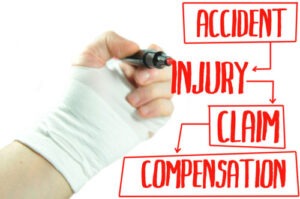
It’s frustrating when persistent vehicle problems delay your commute or alter your travel plans. It’s far worse when mechanical defects cause a tragic crash. Some vehicle manufacturers produce cars and trucks that are destined to disrupt your life. Whether your issue involves repetitive repairs or an accident with injuries, you have the legal right to recover your financial losses. Depending on the circumstances, you can make a claim under a lemon law or product liability law.
Whether a defect causes accidents, injuries, or repair concerns, vehicle manufacturers rarely take action on their own. If you receive a vehicle recall notification, it’s usually because the National Highway Traffic Safety Administration forced a manufacturer to do something. If you are experiencing difficulties due to a vehicle defect, you can’t afford to wait until the manufacturer notifies you. When you consult with a product liability or lemon law attorney they help you determine your viable legal options.
Product liability vs Lemon Law
Both product liability and lemon law statutes protect consumers from financial losses due to defective vehicles. Manufacturers rarely take responsibility for their defective vehicles. Doing so often diminishes their brand’s reputation. It forces them to take costly actions to correct the problem. If a manufacturer’s defect has affected you in some way, product liability lawyers and lemon lawyers help you determine the best way to pursue your case. Before you call, you should understand the differences between these two types of issues.


Expect More, Receive More: Legal Support That Feels Like Family
Product Liability Claims
When a vehicle defect causes or contributes to an accident, you have a potential product liability claim. Product liability laws give you legal recovery rights. The statutes vary based on jurisdiction, but each law establishes a legal process to recover defect-related damages.
A brake defect is just one example of a defect with the capacity to cause serious harm. When you engage the brake pedal, you depend on the braking system to stop your vehicle. If your brakes fail, they might still slow your vehicle, but often the momentum continues. Whether you hit another vehicle or a wall, the force on impact is often powerful enough to cause extensive damage and serious or catastrophic injuries.
Vehicles are complex machinery controlled by electronic and computer components. They often have inherent design and manufacturing issues. Here are a few of the more high-profile cases.
Accelerator defects: Multiple vehicle owners have experienced issues where their cars or trucks accelerated unexpectedly, causing an accident.
Airbag defects: Airbag manufacturer, Takata, has recalled over 67 million vehicles because of an airbag defect. The airbags explode and injure vehicle passengers with a shrapnel type of debris.
Rollovers due to poor design: Narrower, taller vehicles, such as SUVs have a higher center of gravity. Under certain circumstances and conditions, this design flaw has contributed to vehicle rollover accidents.
Gas tank explosions: One high-profile case involved a vehicle design that placed the gas tank in the vehicle’s rear. The tank sometimes exploded during a rear-end impact.
When vehicle defects cause accidents, victims sustain the same wide range of injuries you see in other serious crashes. These sometimes include traumatic brain injuries, spinal cord damage, extensive burns, fractures, internal damage, and other life-threatening or fatal injuries.
You Must Prove Your Case
Product liability laws vary depending on the jurisdiction, but they all have a few things in common. You must meet the burden of proof. Some laws require that you prove a product is unreasonably dangerous for its intended use. Others require you to prove that the manufacturer, designers, or other parties were negligent. You must prove that the defect caused or contributed to your accident. You must also demonstrate that your damages occurred as a result of the crash.
Never Give Your Defective Vehicle to the Manufacturer
When you must show that a vehicle defect exists, your vehicle is the key piece of evidence you need to prove your case. If you plan to make a product liability claim, you should never turn over your vehicle to the manufacturer, its insurer, or its legal representative. Vehicle manufacturers have access to their own team of engineers and vehicle experts. If they disassemble your vehicle while trying to establish a defense, it diminishes the integrity of your own expert’s findings.
Lemon Laws
Lemon laws force manufacturers and sellers to repair or replace a recently-purchased vehicle that requires frequent repairs. In pursuing a case under a lemon law, your goal is to force the manufacturer to take responsibility for their defective product. Potential defects affect engines, transmissions, electrical systems, tires, and other vehicle parts and systems.
When you present your case, your evidence must demonstrate a continuing pattern of mechanical issues. You must also show your good faith attempts to resolve the problems with the manufacturer or its local representative.
Repairs: You must show that you immediately took your car in for repairs when you noticed the problem.
Detailed Records: You must produce receipts and other documentation that verifies your vehicle’s repairs.
Manufacturer’s Lack of Compliance: You must prove that the manufacturer failed to comply with their warranties or other duties.
Neglect or Misuse: You must show that you didn’t neglect or abuse your vehicle, and contribute to the problem.
Contact a Product Liability or Lemon Law Attorney
When a vehicle defect interferes with your life, you have a right to recover legal compensation. Contact a Product Liability Lawyer if you believe a vehicle defect caused or contributed to your accident. Consult a Lemon Law attorney if defects have made driving your vehicle an unpredictable experience.
Call or text (239) 334-3933 or complete a Free Case Evaluation form






